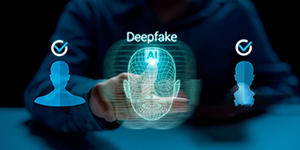Psychology of First Impressions in Job Interviews
In today’s competitive job market, it's not just your resume or skills that determine your success—your ability to make a lasting impression is equally crucial. First impressions in job interviews can shape the entire course of the hiring decision. Whether fair or not, employers often form their initial opinions within seconds of meeting a candidate. Understanding the job interview psychology behind these snap judgments can be your key to success.
Why First Impressions Matter in Interviews
The saying "You never get a second chance to make a first impression" rings especially true in interviews. Employers often decide your suitability for a role based on subconscious impressions formed within the first 30 seconds. These early judgments are influenced by appearance in interviews, tone of voice, handshake quality, and even posture.
The psychology of first impressions in job interviews is rooted in evolutionary psychology, where quick assessments were essential for survival. Today, these quick judgments impact decisions like hiring, often before the interview has even properly begun.
Job Interview Psychology: The Science Behind Snap Judgments
Job interview psychology reveals that interviewers are influenced by something called “confirmation bias.” Once a first impression is made—good or bad—the interviewer unconsciously looks for information that supports that belief throughout the meeting.
For example, if you arrive looking confident and professional, the interviewer may view your answers more favorably. This mental shortcut works both for and against candidates, depending on how strong their opening impression is. That’s why understanding how to make a good first impression is a critical component of interview preparation.
How to Make a Good First Impression
So, how to make a good first impression in a job interview? It begins before you say your first word. Here are a few practical ways to impress right from the start:
• Arrive Early: It shows punctuality and respect for others’ time.
• Dress Appropriately: Your appearance in interviews communicates your understanding of the company culture and your professionalism.
• Greet with Confidence: A firm handshake, a smile, and steady eye contact go a long way.
• Prepare Your Introduction: Practice a brief but impactful self-introduction to start strong.
These simple steps can help create a strong first impression in an interview and set the tone for the rest of the conversation.
Nonverbal Communication in Interviews
A significant part of communication happens without words. That’s why nonverbal communication in interviews can often speak louder than your resume. Facial expressions, posture, gestures, and eye contact are all forms of nonverbal cues that influence how you're perceived.
For instance, crossed arms may indicate defensiveness, while leaning slightly forward shows engagement. Being mindful of your nonverbal communication in interviews helps reinforce your verbal messages and build rapport with the interviewer.
Interview Body Language Tips
Mastering body language is essential if you want to project confidence and competence. Below are effective interview body language tips:
• Maintain Eye Contact: It shows honesty and confidence.
• Use Open Gestures: Avoid closed-off postures like crossing arms.
• Mind Your Posture: Sit up straight, not rigid, and avoid slouching.
• Nod When Appropriate: It signals active listening and engagement.
• Smile Genuinely: A warm smile can humanize the interaction.
These interview body language tips can help create a more memorable and positive interaction with your potential employer.
Appearance in Interviews: What You Wear Matters
Your appearance in interviews isn’t just about looking good—it communicates your respect for the opportunity and your understanding of the company's culture. While there’s no universal dress code, aim for clean, tailored, and neutral-toned attire that reflects the company’s level of formality.
First impressions formed by appearance are often instant and lasting, so it’s wise to invest time into grooming and attire. Simple details like polished shoes or well-ironed clothes can subtly convey your attention to detail.
Confidence in Interviews: Projecting Without Pretending
Confidence in interviews is often the differentiator between candidates with similar qualifications. Confidence doesn’t mean arrogance—it means expressing belief in your abilities while remaining humble and open.
To enhance your confidence in interviews:
• Practice Your Answers: Familiarity breeds confidence.
• Use Positive Self-Talk: Remind yourself of past achievements.
• Focus on Value: Think of what you bring to the table rather than fearing judgment.
Confident candidates make interviewers feel they’re making a safe choice—someone who’s ready to take on challenges.
Read More: First Day at Work Tips: How to Make a Great Impression





